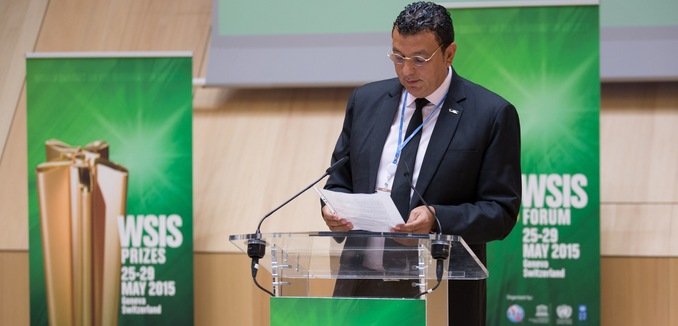A Lebanese-born permanent resident of the United States was sentenced by an Iranian revolutionary court to ten years in prison for spying, The Guardian reported Tuesday.
Nizzar Zakka, an internet freedom activist, disappeared last September after attending a conference in Tehran. His arrest was first reported in November. Zakka had been invited by one of Iran’s vice-presidents and had been scheduled to meet other government ministers. Iranian state media accused him of “deep links” to American intelligence, and showed him in a supposedly incriminating photograph with three other men in military uniforms carrying flags and guns. The picture was actually from his homecoming at his prep school in Georgia.
Jason Roblete, an American lawyer who represents Zakka, said that the court delivered the sentence in a 60-page verdict that hasn’t yet been seen by Zakka’s friends. According to Amnesty International, Zakka was present at only two hearings and had limited defense counsel before the sentence was returned by the revolutionary court, whose proceedings are held behind closed doors and deal with alleged attempts to overthrow the government.
The sentence was criticized by David Ramadan, a former Virginia state legislator and founder of the Friends of Nizar Zakka group. The sentence shows that Iran has “no regard for any international order, any international agreement or any international state of relations that they care about,” Ramadan said.
The judge in Zakka’s case, Judge Abolghassem Salavati, also heard the cases of two other dual nationals detained by Iran: Washington Post reporter Jason Rezaian and British charity worker Nazanin Zaghari-Ratcliffe. Rezaian was convicted of espionage, but was released in January along with three other Americans who were held by Iran. Zaghari-Ratcliffe was sentenced to five years in prison earlier this month. Salavati has been accused by human rights organizations as having led a “crackdown on journalists and political activists.”
Reuters reported in July that the six dual nationals who were most recently arrested comprise “the highest number of Iranians with dual-nationality detained at one time in recent years to have been acknowledged.” Another dual national, a former member of the Iranian nuclear negotiating team, was arrested in August. Many analysts believe that Iran is “seeking concessions from the West in exchange for releasing” dual nationals, the Associated Press wrote that month.
Among those still detained include Zaghari-Ratcliffe, who has been separated from her husband and toddler daughter; Canadian-Iranian scholar Homa Hoodfar, who was arrested earlier this year when she returned to Iran to see her family and has recently been hospitalized; American-Iranian businessman Siamak Namazi and his father, Baquer Namazi; and British-Iranian businessman Kamal Foroughi.
The UK’s Foreign and Commonwealth Office upgraded its travel warning in July, emphasizing that dual nationals may be “arbitrarily detained in Iran.” The UK’s warning is similar to one issued by the U.S. State Department, which warned in August that citizens visiting Iran could be “unjustly detained.”
In Why Does Iran Keep Taking American Hostages?, published in the September 2015 issue of The Tower Magazine, Iran expert Ali Alfoneh described the regime’s detainment of foreign and dual-nationals as “a perfectly normal procedure and political practice in the Islamic Republic. That has been the case since the first day of the revolution and continues until today.”
[Photo: ITU Pictures / Flickr ]




